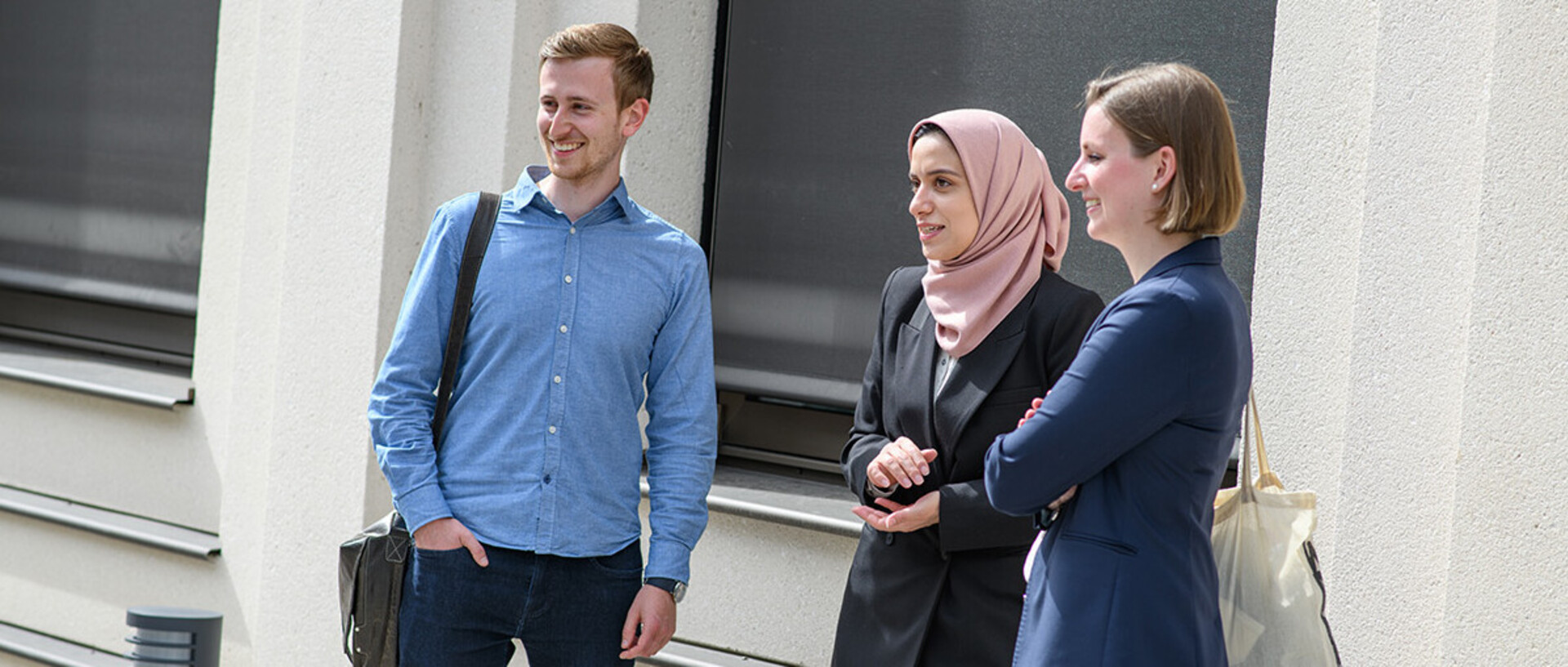Program Structure
The teaching and training concept of the GESS reflects the development of doctoral students from active learners to independent researchers.
Course phase
In the course phase of the doctoral programs graduate students complete up to two years of coursework complemented by small group exercises, tutorials, and research training followed by examinations.
Core course program
The teaching program includes mandatory core courses across all three doctoral centers covering the topics research design, statistical modelling, and methods of causal inference.
Field course program
Specialized field courses introduce students to the application of methodology in their chosen research area. The interdisciplinary character of the Graduate School features prominently in both stages of the course phase.
Based on the performance in the examinations and the quality of the first- or second-year paper, the Admissions and Assessments Committee of the respective doctoral center decides whether to promote the graduate student into the thesis writing phase of the program.
Writing phase
During the thesis writing phase doctoral students work on their research projects under close supervision of dedicated faculty members. Here, they learn to take the step from executing research under guidance toward independently developing their own research ideas. In this phase they write research papers, present them in seminars and colloquia, and submit their papers to international conferences and journals.
Our graduate students regularly present their research progress to supervisors and fellow students in area-specific and interdisciplinary doctoral seminars. A wide range of additional opportunities encourage and stimulate students to work across the boundaries of their field, to participate in international conferences and summer schools and to integrate themselves into the international research network of their respective fields.
Placement phase
In the placement phase of the program graduate students receive information and training for the academic (and non-academic) job market. Each doctoral center has at least one faculty member appointed as ‘placement officers’ who helps students prepare their job market packages. Mock interviews with faculty members and practice job talks in the presence of faculty provide useful feedback for a successful job market experience. Recent placements of our graduates include positions as assistant professors and post-doctoral fellows in top departments, as well as placements in international organizations, public institutions, and the private sector.
